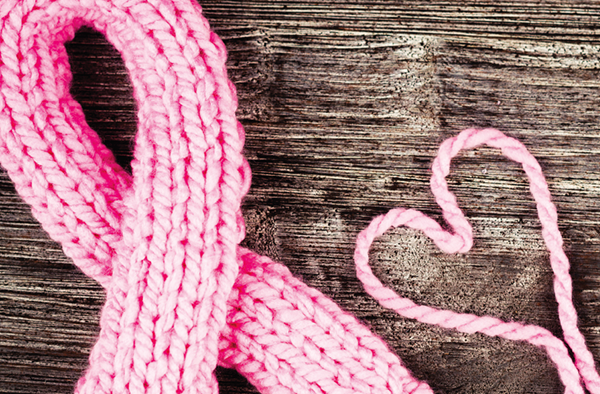The Link Between Breast Cancer and Heart Disease

Breast cancer treatments may increase the risk of heart disease. So wrote the American Heart Association in a scientific statement earlier this year.
For the 3 million U.S. women who are survivors of breast cancer – not to mention the 266,000 women expected to be diagnosed this year – understanding the links between breast cancer and heart disease is critical. After all, heart disease causes more women's deaths each year than anything else, and 90% of women already have at least one risk factor for heart disease.
We asked oncologists at OHSU's Knight Cancer Institute about the connection between breast cancer treatment and heart disease, and how they take this into account in treating their patients. Zahi Mitri, M.D., M.S., focuses on breast cancer treatments like chemotherapy, and Sophia Bornstein, M.D., Ph.D., is a radiation oncologist.
Chemotherapy and Heart Disease
There are many types of chemotherapy, but one very common – and effective – type is the anthracycline doxorubicin. Part of how it works is by binding to cancer cells' DNA to stop them from replicating. This is great for treating breast cancer, but anthracyclines can cause irreversible damage to the heart.
"It's extremely rare. It's just a 1 or 2% risk, but it's devastating if it happens," says Dr. Mitri. "We talk to our patients about this risk, and some patients choose chemotherapy options that are potentially less effective but don't have anthracyclines."
Chemotherapy can also cause temporary heart problems, such as murmurs and other rhythm issues.
The good news is that chemotherapy does not seem to increase women's risk of heart disease long-term. "The risks to the heart of chemotherapy end when treatment ends," says Dr. Mitri.
Radiation and Heart Disease
For women treated with radiation therapy, long-term heart disease risk is much more of a concern. Especially for women with cancer in the left breast, which is closer to the heart.
"Based on studies, the risk to the heart seems to be related to the size of the dose of radiation," says Dr. Bornstein. "Higher doses of radiation increase risk more than lower doses."
For women with left-sided breast cancer being treated with radiation, there are several strategies Dr. Bornstein and her colleagues use to protect the heart. Deep inspiration breath hold – where a patient takes a deep breath in and holds it during radiation – makes use of the patient's lungs full of air to create distance between the breast and the heart. Radiation can also be delivered using a prone position. The patient lies on her stomach, allowing her breast to hang down and away from her heart for treatment.
There is more good news. For women being treated with radiation today, the risk of long-term heart damage is likely lower than studies are showing. "The studies are looking at cardiac event rates in women who had radiation treatments a decade or more ago," Dr. Bornstein says. "Radiation technology has changed greatly since then, and we are now very careful about documenting and minimizing how much radiation the heart receives."
For breast cancer survivors who may have received radiation a decade or more ago, just knowing they may be at increased risk of heart disease can help. Women and their health care providers can closely monitor symptoms and early potential signs, such as high blood pressure or high cholesterol.
Risk Factors in Common
Researchers are also finding that breast cancer and heart disease share many of the same risk factors. For example, aging, poor diet, lack of exercise, and smoking all increase your risk for both diseases.
"Lifestyle changes, like exercising and losing weight, can reduce your risk of both," says Dr. Mitri. Breast cancer survivors can still reduce their risk of heart disease by living a healthy lifestyle.
Working Together for Women
Because of the links between cancer, cancer treatment and heart disease, the Knight Cardiovascular Institute has a cardio-oncology team. These cardiologists with special expertise in cardio-oncology consult with their colleagues and see patients before, during and after cancer treatments.
One member of the team, Shimoli Shah, M.D., is also an expert on heart disease in women –she regularly sees patients at the OHSU Center for Women's Health.